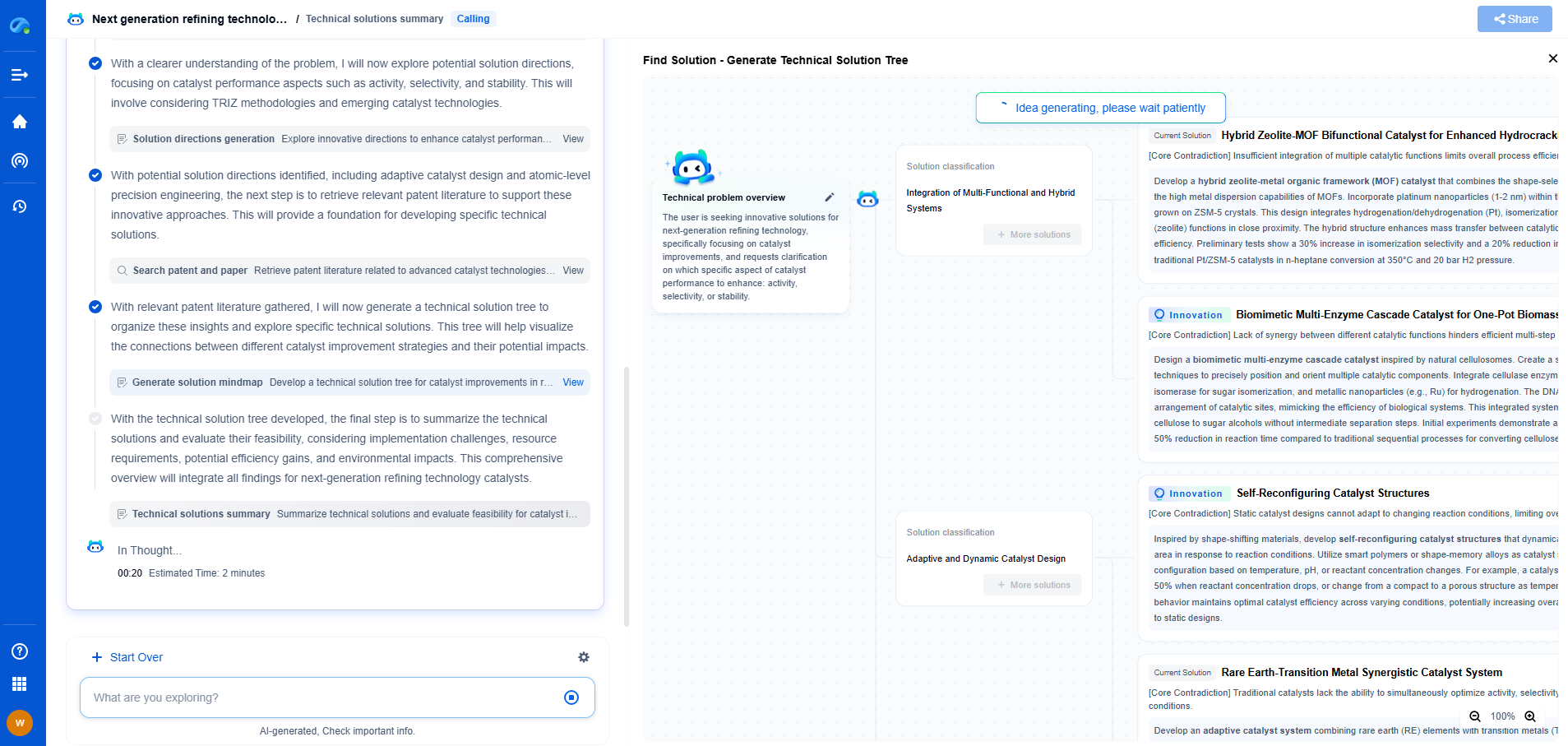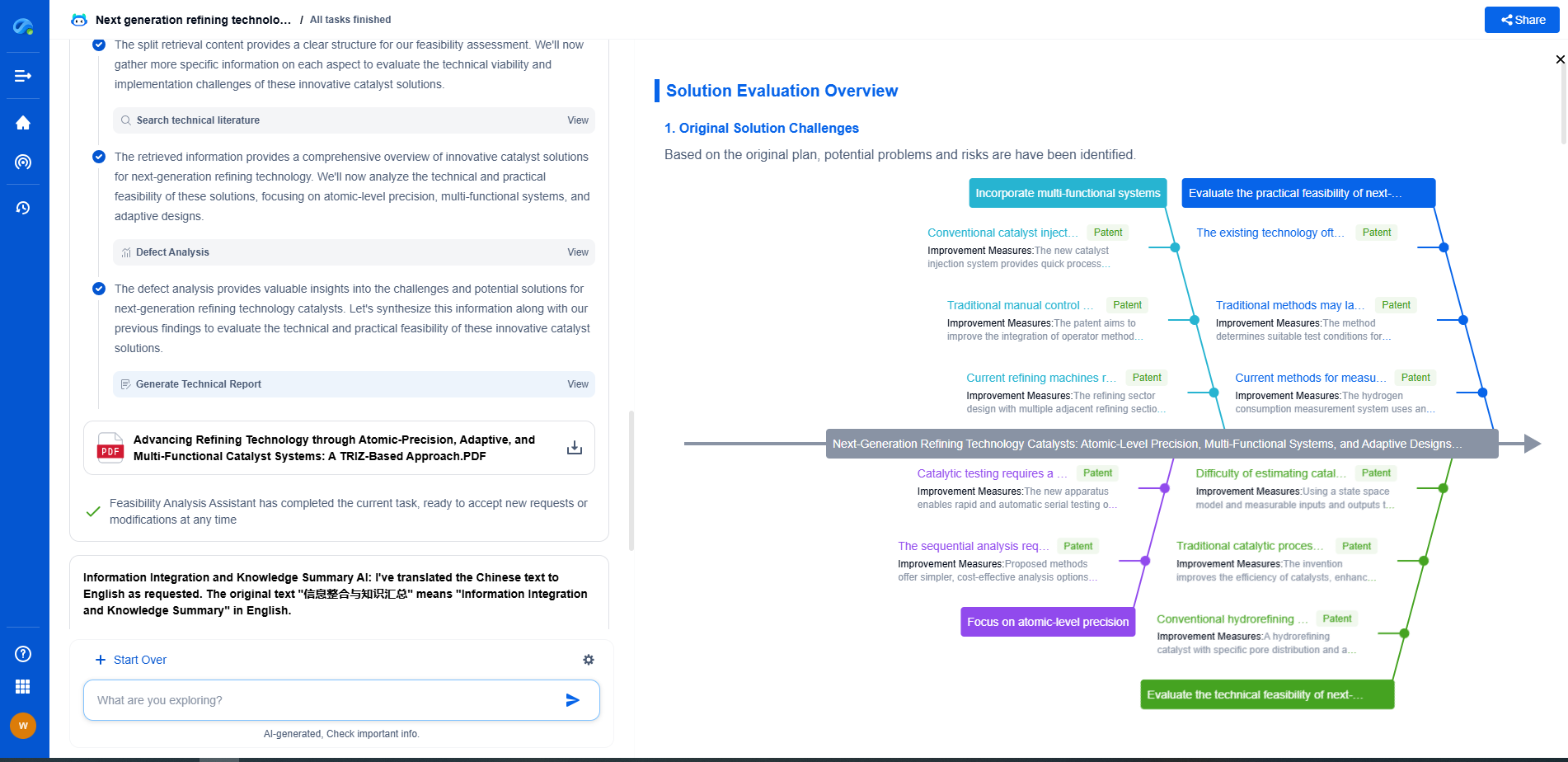Common Issues in SCADA System Deployment and How to Solve Them
JUL 2, 2025 |
Integration Challenges
One of the foremost challenges in SCADA deployment is integrating new systems with existing infrastructure. Many organizations already have a variety of industrial devices and legacy systems in place, making seamless integration difficult. Disparate protocols and communication interfaces can hinder effective data exchange between the new SCADA system and older equipment.
To address this, it's essential to conduct a thorough assessment of the existing infrastructure before deployment. Identify all devices and systems that need to be integrated and choose a SCADA solution that supports a wide range of communication protocols. Implementing middleware solutions can bridge the gap between incompatible systems, ensuring smooth data flow and interoperability.
Cybersecurity Concerns
With the rise of cyber threats targeting industrial control systems, ensuring robust security measures for SCADA systems is paramount. Vulnerabilities in SCADA systems can lead to unauthorized access, data breaches, or even operational disruptions.
To mitigate these risks, adopting a multi-layered security approach is essential. This includes implementing firewalls, intrusion detection systems, and encryption protocols. Regular security audits and vulnerability assessments should be conducted to identify and resolve potential threats. Additionally, training employees on cybersecurity best practices can help build a security-conscious culture within the organization.
Scalability Issues
As organizations grow, their operational requirements evolve, necessitating a scalable SCADA system that can accommodate future expansions. However, a common issue during deployment is underestimating the scalability needs, which can lead to significant challenges later on.
To ensure scalability, choose a SCADA system that offers modular architecture, allowing for easy integration of additional components and devices. Cloud-based SCADA solutions can also provide the flexibility to scale resources up or down based on demand. Planning for future growth during the initial deployment phase can prevent costly upgrades and system overhauls in the future.
Data Overload
SCADA systems generate vast amounts of data, which can become overwhelming if not managed effectively. Data overload can lead to analysis paralysis, where operators struggle to extract meaningful insights from the sheer volume of data.
To tackle this issue, implement data management strategies such as filtering, aggregation, and prioritization. Employ advanced analytics tools to process and analyze data in real-time, providing operators with actionable insights. Dashboards and visualization tools can help present data in an easily understandable format, aiding in quicker decision-making.
Vendor Dependence
Relying heavily on a single vendor for SCADA system components and support can create challenges, especially if the vendor becomes unresponsive or goes out of business. Vendor lock-in can limit flexibility and increase costs over time.
To reduce vendor dependence, consider adopting open standards and interoperable solutions that allow for easier integration with products from multiple vendors. This approach not only enhances flexibility but also encourages healthy competition among vendors, leading to better service and pricing options.
Conclusion
Deploying a SCADA system is a complex but rewarding endeavor that can significantly enhance operational efficiency and decision-making capabilities. By understanding and addressing common deployment challenges such as integration, cybersecurity, scalability, data management, and vendor dependence, organizations can ensure a smooth and successful SCADA implementation. Taking a proactive approach to these challenges will not only streamline the deployment process but also maximize the long-term benefits of the SCADA system.
Ready to Reinvent How You Work on Control Systems?
Designing, analyzing, and optimizing control systems involves complex decision-making, from selecting the right sensor configurations to ensuring robust fault tolerance and interoperability. If you’re spending countless hours digging through documentation, standards, patents, or simulation results — it's time for a smarter way to work.
Patsnap Eureka is your intelligent AI Agent, purpose-built for R&D and IP professionals in high-tech industries. Whether you're developing next-gen motion controllers, debugging signal integrity issues, or navigating complex regulatory and patent landscapes in industrial automation, Eureka helps you cut through technical noise and surface the insights that matter—faster.
👉 Experience Patsnap Eureka today — Power up your Control Systems innovation with AI intelligence built for engineers and IP minds.
- R&D
- Intellectual Property
- Life Sciences
- Materials
- Tech Scout
- Unparalleled Data Quality
- Higher Quality Content
- 60% Fewer Hallucinations
Browse by: Latest US Patents, China's latest patents, Technical Efficacy Thesaurus, Application Domain, Technology Topic, Popular Technical Reports.
© 2025 PatSnap. All rights reserved.Legal|Privacy policy|Modern Slavery Act Transparency Statement|Sitemap|About US| Contact US: help@patsnap.com

